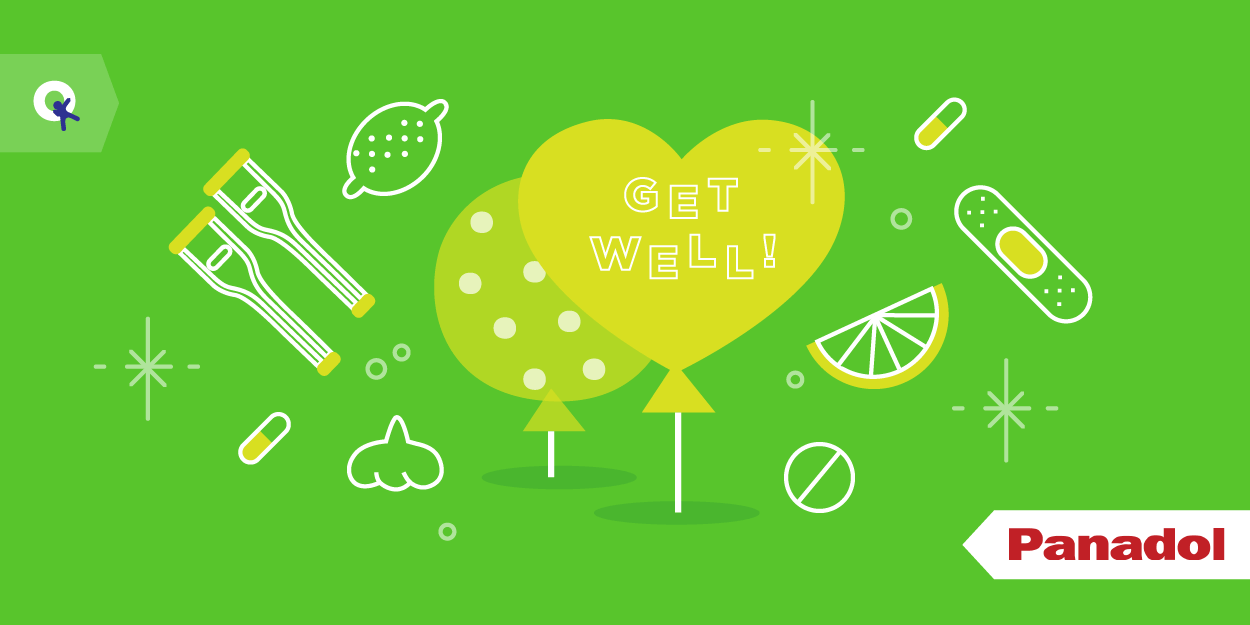Quirky Kid and Panadol
.webp)

Dr Kimberley O'Brien, our principal child psychologist was engaged as an expert presenter during a campaign by Panadol. Her role as an expert independent presenter will be to share expert advice on managing parental anxiety at times of common illness in the family and soothing sick kids.
Kimberley will share her insights on the importance of having a plan and tools to help parents through common challenges, particularly of childhood illness. During the event, Kimberley will answer questions from the floor and attend to interviews.
About the survey
The event aims to share with the media a Global survey that finds parents need to short-circuit their own anxiety to better manage their child’s illness.
The survey suggests that parents manage day to day mishaps and mistakes calmly, but still get stressed about the important things like helping their children through illness.
The survey included responses from more than 2,000 parents worldwide revealed the biggest parenting concern for parents is when their child is unwell. While 75% of Australian parents surveyed say they are very confident in treating their child’s pain or fever, 71% of Australian parents feel anxious about fever/temperature and 66% feel anxious about their child’s pain.
Kimberly O’Brien explains how this anxiety can impact children, emphasising the need for planning and coping strategies, and tools to help them through.
“Children are likely to vicariously experience stress when their parents are stressed. Even a change in facial expression or voice tone between parents may trigger stress responses in children, such as excessive crying, separation-anxiety and withdrawal,” says leading Australian child psychologist Dr Kimberley O’Brien.
“One of the most important things for parents is to have a plan, in case your child wakes with a temperature at three in the morning. Having tools in place to keep parents calm makes a big difference to sick children,” says Dr O’Brien.
Five Tips from Dr Kimberley O’Brien to manage your anxiety and soothe your sick child:
- Make a plan - This eliminates any indecision about how to best help a child in need. Remember to include distraction and calming tools if medication is required.
- Know your tools - A personalised DVD designed to soothe sick children, a favourite toy or game may relax children in need of medical intervention.
- Empathise - Try to see things from your child's perspective to better understand their behaviour.
- Do familiar things - If possible, keep your usual family routines in place to maintain a sense of normality at home.
- Manage your anxiety - Call on your support networks and share the load of caring for your sick child. It will increase the quality of your care!
Children’s Panadol has created tools to help support parents in managing their child’s health and wellbeing including new, interactive and customisable apps to support in moments of common illness:
TV host and mother Shelley Craft (who will also be at the event) says “As a mother, sometimes I feel like I need to clone myself and be in two places at once – particularly when one of my kids is sick. A resource like Buddy Bear means you can distract and calm a toddler with a personalised story, giving you the chance to go and measure medicine, or even just take a moment to breathe.
You pop in their name and photo and choose from a list of common nursery rhymes for Buddy Bear to sing, so it really is a personalised video just for your child when they need it most,” says Shelley.
Dr O’Brien observes “The positive finding from the Children’s Panadol Global Survey is that Australian parents are less concerned about the small mishaps we all have, in order to focus on the important things.”
When it comes to day-to-day mistakes, Australian parents appear to go easier on themselves than those in other countries, with 29 percent of Australian parents reporting feeling guilty if they forgot to do something for their child, compared with 41 percent across the international study. However 33 percent did admit to feeling disappointed in themselves if they forgot to do something for their child, and 44 percent worry about whether they are being a good parent (particularly mothers and those with babies).
The top three feelings about parenthood most reported by Australian parents were happy (73%), responsible (67%) and joyful (58%), however 51 per cent of all parents did admit to at least one negative feeling. “We know parental anxiety negatively impacts on children and this is amplified when they're unwell.
Parents are encouraged to develop a routine with their child about managing unexpected illnesses. This ensures everyone knows the drill and will alleviate stress for both parent and child,” says Dr O’Brien.
About the Survey:
An online survey of 2,150 parents internationally - including Australia (n=400), Colombia (n=400), Indonesia (n=400), Philippines (n=400), Romania (n=400), Saudi Arabia (n=150) – was commissioned by GSK, the makers of Children’s Panadol, and conducted in December 2015 by independent research organisation Lightspeed.

Start now and implement a Quirky Kid Program at your school or clinic.
Our programs includes an interactive workbooks and concise set of engaging award-winning materials to facilitate social and emotional learning (SEL).

.png)



.webp)

